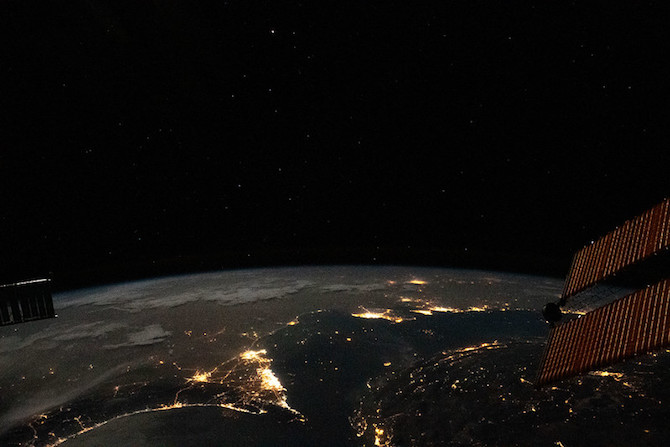Reasons for Economic Development in the Arabian Gulf

The Arabian Gulf region, encompassing the Gulf Cooperation Council (GCC) countries, has emerged as a dynamic hub for economic development. The “Business Opportunities – Building the Creative Economies in the GCC – Summary Report – MARCH 2023,” sheds light on the potential for growth and innovation within the creative economies of the GCC. This article explores the broader reasons driving economic development in the Arabian Gulf, highlighting key factors contributing to the region’s prosperity.
Stay updated with the most recent Gulf news by visiting this reliable source.
Strategic Geographic Location
The Arabian Gulf’s strategic geographic location serves as a gateway between Asia, Europe, and Africa. It offers access to major shipping routes, making it an attractive destination for international trade and investment. With its well-established ports, logistics infrastructure, and connectivity, the region facilitates efficient transportation of goods and services, enhancing its position as a global trading hub.
The abundance of Natural Resources
The GCC countries possess vast reserves of natural resources, particularly oil and gas. These resources have been a cornerstone of economic development in the region, providing significant revenues for investment in infrastructure, healthcare, education, and various sectors. The wealth generated from natural resources has contributed to economic diversification efforts and the development of non-oil sectors, promoting long-term sustainability and resilience.
Forward-Looking Economic Diversification
Recognizing the need to reduce dependence on oil revenues, the GCC countries have embarked on ambitious economic diversification plans. By fostering a shift towards knowledge-based industries, innovation, and entrepreneurship, they aim to build robust and sustainable economies. As highlighted in the summary report, the creative economies represent a key component of this diversification strategy, emphasizing the development of arts, culture, media, design, and technology sectors.
Investment in Infrastructure
Investments in infrastructure play a pivotal role in economic development. The Arabian Gulf region has made substantial investments in world-class infrastructure projects, including transportation networks, airports, seaports, telecommunications, and energy facilities. These developments not only support the growth of various industries but also enhance connectivity, attract foreign direct investment, and promote tourism.
Pro-Business Environment
The GCC countries have implemented pro-business policies and regulatory frameworks to attract domestic and foreign investment. These measures include simplified procedures for business setup, tax incentives, protection of intellectual property rights, and investor-friendly regulations. Creating a favorable business environment fosters entrepreneurship, innovation, and competitiveness, driving economic growth and attracting international companies to establish a presence in the region.
Focus on Education and Human Capital Development
Investments in education and human capital development have been instrumental in the Arabian Gulf’s economic progress. The GCC countries have prioritized enhancing educational institutions, fostering research and development, and equipping their workforce with the necessary skills for a knowledge-based economy. They aim to build a highly skilled workforce capable of driving innovation and productivity by promoting lifelong learning, entrepreneurship, and vocational training.
Regional Collaboration and Integration
Regional collaboration and integration play a significant role in the Arabian Gulf’s economic development. The GCC countries have established strong ties through economic agreements, joint ventures, and initiatives aimed at enhancing trade and investment flows within the region. Cooperation in sectors such as energy, finance, tourism, and infrastructure development strengthen economic interdependence, fosters stability, and enables shared benefits.
Conclusion
The economic development of the Arabian Gulf is driven by its strategic location, rich natural resources, diversification plans, infrastructure investments, pro-business environment, focus on education and human capital, and regional collaboration. These factors have propelled the region to become a thriving economic powerhouse, attracting global trade and investment. Diversification efforts, particularly in the creative economies, have reduced reliance on oil revenues and promoted non-oil sectors. Investments in infrastructure, a pro-business environment, and a skilled workforce have further supported economic growth. Regional collaboration has enhanced trade and stability. Overall, the Arabian Gulf’s economic development is the result of strategic initiatives that have positioned it as a dynamic force in the global economy.
Stay informed about the latest Gulf news here.




